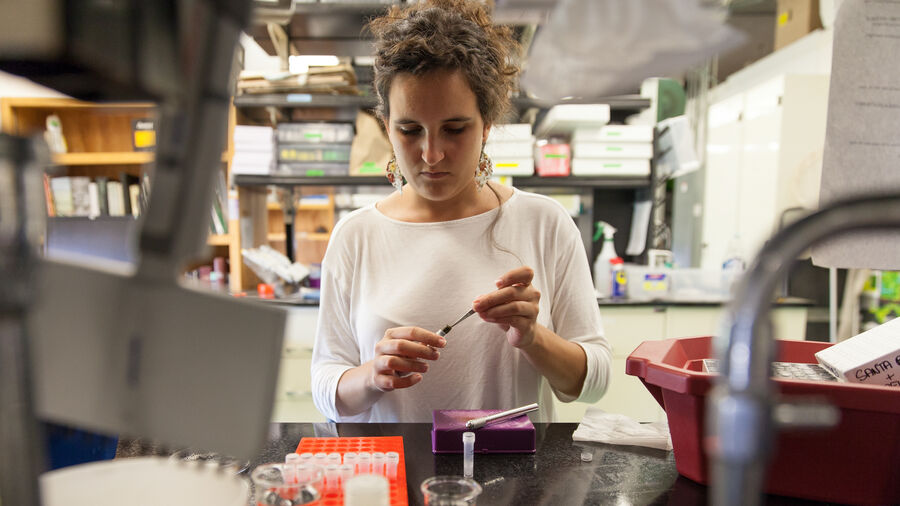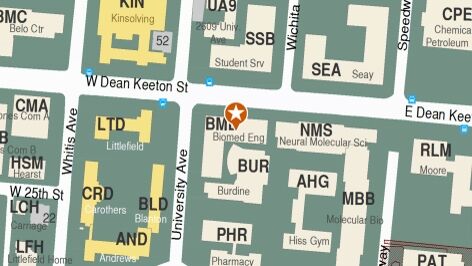Biomedical Engineering
Major in the Cockrell School of Engineering

As a biomedical engineer, you'll make a real difference in the lives of others through the improvement of health care systems.
Biomedical Engineers use engineering problem solving tools and biomedical science to improve outcomes for patients by solving complex problems in medicine. Examples of biomedical engineering systems include: MRI, CT, ultra-sound, and other imaging modalities; EKGs, oxygen meters, and measurement instruments used in hospitals; cancer-fighting pharmaceuticals, cell and tissue engineering, and other regenerative medicine applications; and thousands more procedures and devices that diagnose conditions, sustain health, and fight disease.
Freshman and External Transfer Admission
ShowProspective University of Texas at Austin students should visit UT Admissions to learn about the application process and how to declare a major.
Internal Transfer Requirements
ShowUndergraduates currently enrolled at The University of Texas at Austin who wish to change to an engineering major need to apply for an internal transfer.
Internal transfer applicants are students currently enrolled at The University of Texas at Austin who are seeking to transfer within or into a major in the Cockrell School of Engineering. Find out more about the internal transfer process.
Required Courses
ShowThe BSBME degree at UT Austin requires 133 semester credit hours, including programming, engineering design, statistics, communication, physiology, biomaterials, instrumentation and many other important core theory and application courses for Biomedical Engineering. For a detailed list of required courses, read the Biomedical Engineering undergraduate curriculum overview.
Hear from UT BME graduating seniors about the BSBME degree at UT Austin by watching this video.
Specializations
ShowBiomedical Engineering (BME) offers four technical areas of emphasis:
- Imaging and Instrumentation
- Cell and Biomolecular Engineering
- Computational Biomedical Engineering
- Molecular, Cellular, and Tissue Biomechanics
Personality
ShowEngineers are creative problem solvers who are essential to our health, happiness, and safety. Engineering students celebrate discovery, design, creativity, imagination, innovation, and contribution to the world we live in. No profession unleashes the spirit of innovation like engineering. From research to real-world applications, engineers constantly discover how to improve our lives by creating bold new solutions that connect science to life in unexpected, forward-thinking ways. Few professions turn so many ideas into so many realities. Few have such a direct and positive effect on people's everyday lives. We are counting on engineers and their imaginations to help us meet the needs of the 21st century.
Skills
ShowEngineering students will acquire creative problem solving skills and the ability to design and lead in a variety of situations and environments. Based on "The Engineer of 2020" by the National Academy of Engineering, the Cockrell School of Engineering strives to graduate students who:
- Possess strong analytical skills
- Exhibit practical ingenuity - skill in planning, combing and adapting
- Exhibit creativity - invention, innovation, thinking outside of the box
- Exhibit good communication skills
- Master the principles of business and management
- Understand and practice the principles of leadership
- Possess a framework upon which high ethical standards and a strong sense of professionalism can be developed
- Exhibit dynamism, agility, resilience, and flexibility
- Embrace being a lifelong learner
